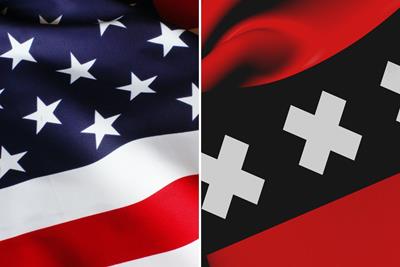
Thursday November 29, 2018
By Andrew Ward
 Travel
Travel
By now, it’s well established that Canada joined Uruguay as the second nation to legalize recreational cannabis. Under progressive Prime Minister Justin Trudeau, Canada overtook the U.S. by a mile in cannabis legalization. Today, plenty of Americans look towards Canada, just as they have major state markets like California, to gauge the highs and lows of legalization. Since making the historic step, here are some of the key stories coming from the Canadian cannabis market.
Canada Almost Runs Out of Cannabis
It didn't take long for consumers to put a dent into Canada's cannabis supply. So much so that by early November, dispensaries in numerous provinces found themselves running low on flower and other products. In Toronto, shipment delays helped hold back product availability. Meanwhile, Quebec had to limit its dispensaries' hours of operation to avoid going dry. While the shortage affected those in Ontario, Quebec and New Brunswick, other provinces appeared to fare better.
Although it may be funny to envision Canadians clearing out their supplies, it isn’t so humorous when you’re trying to stop the black market. With the nation legalizing cannabis, in part, in hopes of curtailing the black market, these shortages likely prompted consumers to go back to their old purchasing methods. This only adds to the concerns around the black market thanks to the nation’s one year ban on edibles and concentrates.

That said, it is common for markets to face shortages and hiccups early on. States like California and Nevada saw long lines and price spikes. However, Canada is its own category as the only nation to federally legalize such a model for its cannabis marketplace. The impact of these shortages and customer frustrations likely won’t be measured for at least some months or more.
Opens Sales to Cannabis, Pardons to Offenders
When it legalized cannabis, Canada became the largest legal marketplace in the world. Not only is that evident in their historic decision, but also in situations like the shortages detailed above. Sales began early morning in Newfoundland, spreading across the nation from there. Customers formed lines at dispensaries, with groups of over 100 a common sight. Similar to 4/20 celebrations in size and joy, crowds were reported to be jovial yet compliant of the laws. Canada’s focus on the law that day, however, was not centralized on the people in line and public consumption.
Instead, the federal government used legalization day to announce plans to expedite the pardoning process for Canadians with a cannabis possession charge on their records.
The move could impact an estimated 500,000 Canadians – although some residents questioned if this will be enough. Those seeking more progress hope to see Ottawa instead expunge records so that cannabis possession charges would be removed from the records of the individuals.
A Booming Job Market
Canadian companies are some of the most valuable names in the industry today. Getting a jump on the market before other countries afforded a company like Canopy Growth to become the leader it is today. Now, more Canadian companies are seeing their profits soar. Even if they aren't at the figures Canopy is used to, the surge in revenue has led to a boom in the job market. Cannabis job listings are popping up more prevalently; from cultivators touching the plant to software developers and compliance specialists that are far removed from handling cannabis themselves.

Dan Skilleter, a six-year industry professional, told The Washington Post that he now can't go a week without having a friend contact him for information about working in the industry. “I’m having to constantly clear time in my schedule for coffees with people.” Now, with job growth unlike any other market, cannabis has begun to poach the best talent in other industries. With the allure of working in cannabis and developing a new industry, workers are now flocking to a space which was once seen as a venture only for those on the black market.
Border Issues Continue
Since legalization began, people have seemingly become more brazen when attempting to bring cannabis across the border. In October alone, U.S. Customs and Border Protection reported seizing up to 85 pounds of cannabis across 100 different seizures across north of the border stops. While that number may not seem too high compared to monthly border crossings, the same time frame last year saw only two pounds seized from 40 separate incidents. Even though possession violations are up going in both directions, border agents did not note any uptick in impaired driving.
Additionally, fears of a potential lifetime border entry ban into the U.S. still looms heavily over anyone in the industry. As such, Canada-based investors, managers and employees alike are all on guard about entering the United States for any purpose. Despite the change in stance by Canada, America will continue to enforce policy surrounding cannabis.
Overall, Canada’s foray into legalization has been a smashing success. While shortages kicked things off, the nation got its stuff together like plenty of states in the U.S. have had to as well. It appears that much of the issues surrounding cannabis could center on international travel and the criminal records of its citizens. While sizable issues are present, Canada appears to be handling its adult use market properly at this time. Hurdles are sure to arise, but that’s expected in a new industry. Stay tuned for more information as it unfolds.
What are your thoughts on Canada’s emerging cannabis industry? Share them below!







